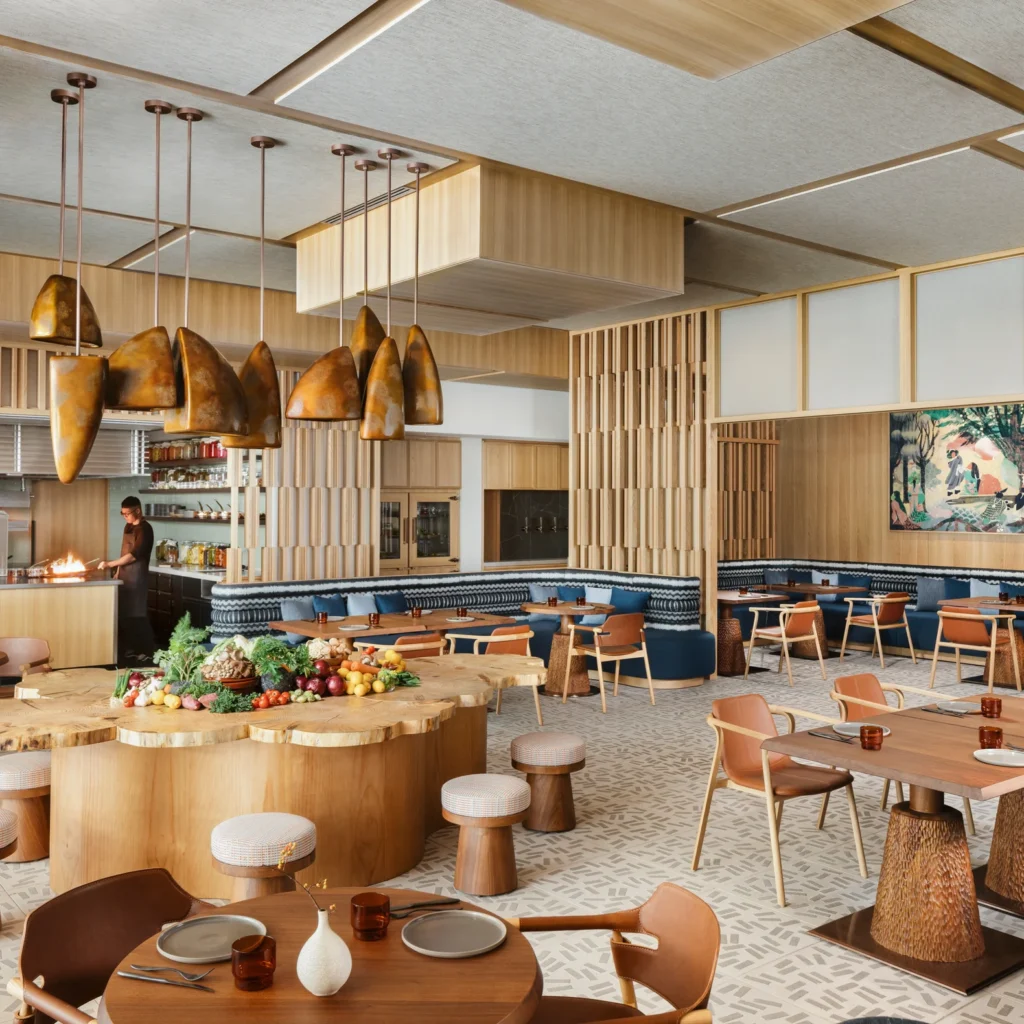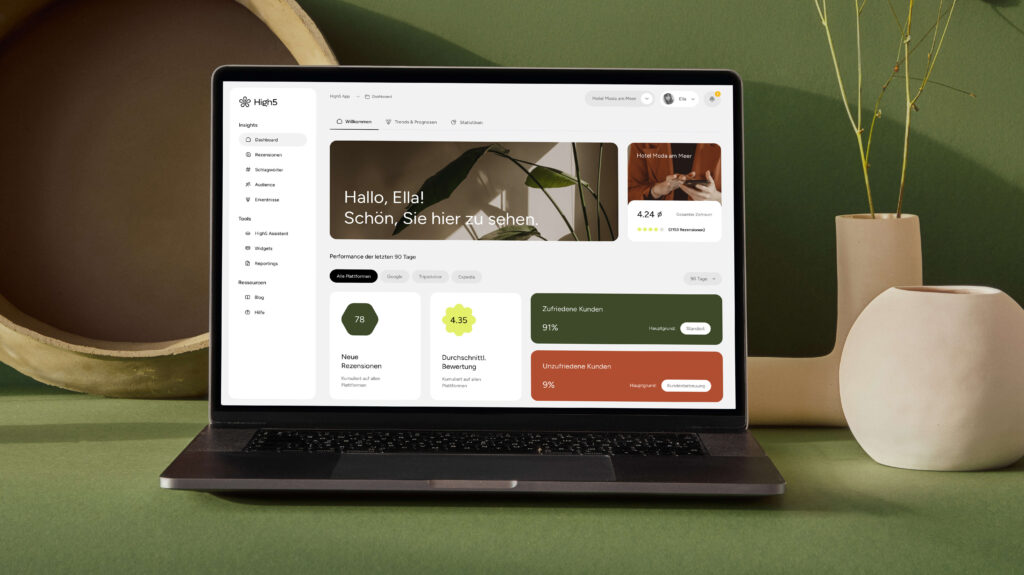5 trends in the hotel industry in 2025
The hotel industry of 2025 will be characterized by technical innovations, sustainable approaches and a growing demand for more self-determination on the part of guests. More and more hotels are relying on digital solutions to make their guests’ stay more individual and comfortable. Technologies such as smart rooms and self-service options are becoming increasingly popular, while sustainability and personalization also play a key role. In the following, we take a look at the most important trends and see how some pioneers in the hotel industry have already successfully implemented these concepts.
1. smart rooms: when the room thinks for itself
Smart rooms are increasingly becoming the norm and are one of the groundbreaking trends in the hotel industry in 2025. The ability to control lighting, temperature and entertainment via smartphone or voice assistant gives guests control over their environment and allows them to customize their rooms to their individual preferences. But the smart room is more than just a technical gimmick – it offers real added value in terms of comfort and efficiency.
One hotel that is already successfully implementing this trend is Hilton with its “Connected Room”. Here, guests can fully control room conditions via an app, from the TV to the air conditioning. Also Wynn Las Vegas has taken this step by installing Amazon Alexa in its rooms. This solution allows guests to control amenities and make requests through voice commands, making the entire stay experience more enjoyable.
2. self-service: freedom for the guest
The ability to control hotel processes independently is one of the most important trends in the hotel industry in 2025. Self-service options such as digital check-ins, mobile room keys and room service orders via app offer guests the flexibility to organize their stay according to their wishes without having to rely on staff.
A pioneer in this area is YOTEL in Singapore. The hotel not only offers fully automated check-ins, but also uses robots to operate one. The entire system is designed to offer guests maximum freedom and time savings.
3. sustainability: already a must among the trends in the hotel industry in 2025
Sustainability is no longer just an added bonus, but is actively demanded by guests. Hotels are focusing on ecological construction methods, resource-saving systems and regional products in order to reduce their ecological footprint and at the same time meet the demands of environmentally conscious travelers.
An excellent example of a hotel that focuses on sustainability is Six Senses Kyoto. Here, attention was not only paid to sustainable architecture, but also to offering guests an experience close to nature. Also The Standard Singapore has introduced a “Green Plan” that promotes environmentally friendly practices and integrates sustainability into all aspects of its operations.

4. experience: more than just an overnight stay
More and more guests are looking for authentic and unique experiences. One of the most important trends in the hotel industry in 2025 are experiences, where the stay in the hotel itself becomes an adventure. Hotels offer tailor-made experiences that go beyond simply staying overnight and create a deeper connection to the local culture and environment.
An outstanding example is the Blow Up Hall 50/50 in Poland. Here, guests use their smartphone to find and open their room, while art installations throughout the hotel complement the experience. This creative concept turns the hotel into an interactive art gallery, creating a unique experience.
5. wellness and health: in harmony with body and soul
Health and wellness offers have long been an integral part of the hotel industry, but the demand for holistic concepts continues to grow. Guests are not only looking for relaxation, but also want to actively do something for their health – be it through yoga, tailored nutrition programs or digital detox retreats.
Also a good example of this is Six Senses in Thailand. The hotel combines state-of-the-art wellness technologies such as biohacking with traditional healing methods. This blend of technology and nature appeals to health-conscious travelers who are looking for relaxation as well as physical and mental recuperation. Such innovative concepts are part of the trends in the hotel industry in 2025.
Summary: The future of the hotel industry is digital, personal and sustainable
Today’s hotel industry must adapt to the changing expectations of guests. Technological innovations such as smart rooms and self-service systems create more flexibility and convenience, while sustainable practices and personalized experiences ensure long-term success. To compete successfully, hotels should keep an eye on the trends in the hotel industry in 2025, as they show how the combination of cutting-edge technology, sustainability and authentic experiences will shape the future of the industry.
But at a time when guests are demanding ever greater personalization and efficiency, digitalization is also becoming one of the most effective means of meeting these expectations. Modern technologies offer the opportunity to understand and respond to guest needs in real time. Find out exactly how digitalization is revolutionizing guest services in our article: Digitalization for Hotels: How Modern Technology is Revolutionizing Guest Services



